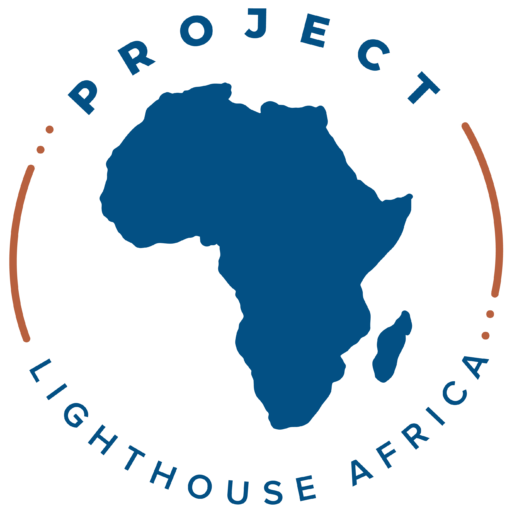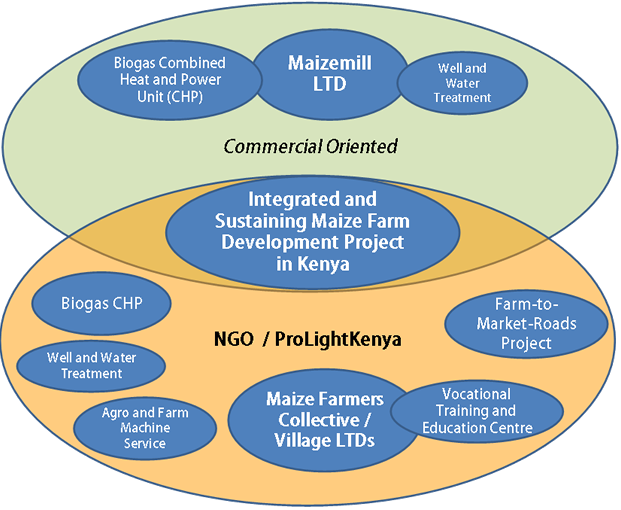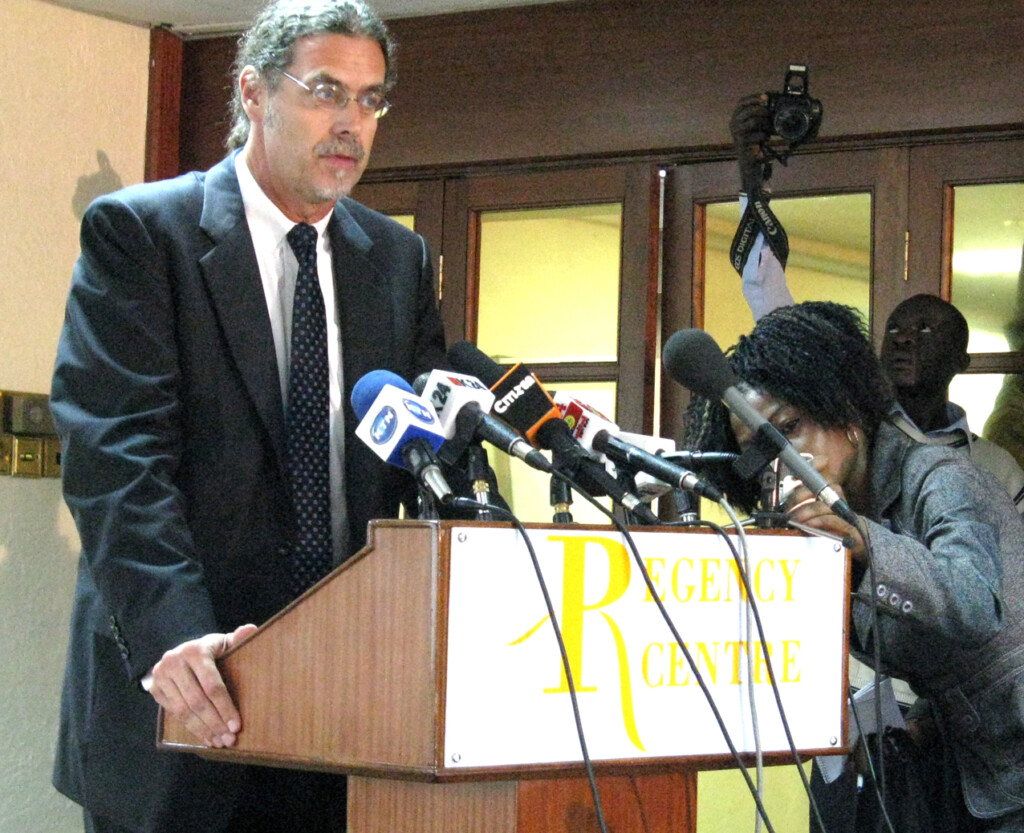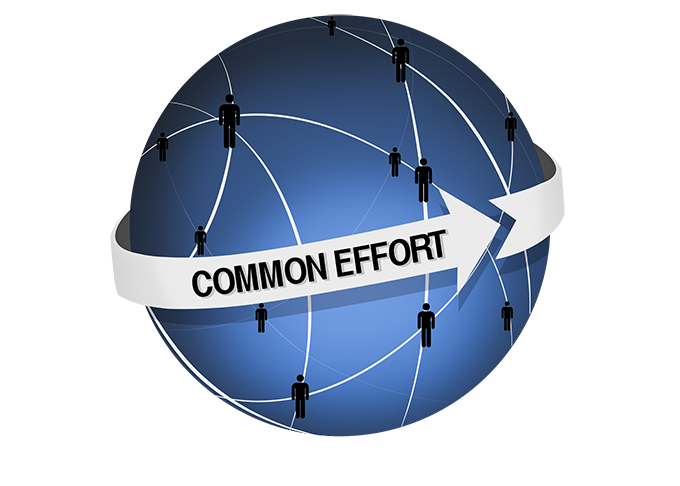A sustainable and efficient agriculture, quantitative and qualitative increase in production of small and smallest farmer, better access to markets, transport of products from rural areas to the market centers and a crisis resistant supply of the population with staple food: These are the challenges in many African countries with a high socio-economic and socio-political influence.
Project Lighthouse Africa and the subsidiary Project Lighthouse Kenya aim – with an integrated, sustainable and crisis resistant Mill & Farm Development Project – at an important and socially relevant contribution to the infrastructural development of Kenya. The concept is supposed to also act as lighthouse project for other (East) African countries.
With our autarkic mill and integrated farm development master plan we want to afford a crisis resistant supply to the population with stable food (maize flour, casava flour) at a fair price on the one hand. On the other hand with the concept we want to offer an option for a sustainable development of farmers business.
The concept is modular structured. According to local factors, different modules can be combined and customized to the situation.
As a first step we want to set up a banana flour production line to assist banana farmers in marketing their products on German and European markets. An emerging market for banana flour is developing in Germany. Particularly banana flour is gluten free, has a high protein content and hence is very intersesting for the food industry.
For starting the project we access to midget production of two small local mills (banana flour production is not common in Kenya and therefore this way of marketing bananas is very new for local farmers). In a second step we want to set up our own production line, based on our concept of an autarkic mill.
According to our concept this includes:
- set up and running of a banana mill
- affiliated with a biogas CHP for autarkic energy supply
- use of biogas and CHP heat for drying process of bananas
- own truck fleet with off-road trucks, which are able to access to rural farms for transporting the bananas to the mill (farm-to-market-roads solution)
- set up of a training center for local farmers
It is contemplated to set up a first banana flour production in Meru (Mount Kenya) and Busia (border to Uganda), with the option to run a cross-border farm development program between Kenya and Uganda.
Perspectively the mill can be extended to a combined maize, banana and casava mill, with capacities for drying and storing maize in large quantities.
By development and implementing the maize mill concept we look at the current situation on Kenya’s maize market. A handful major maize mills cartelise the maize and maize flour market within Kenya. Hence they dictate the production conditions, purchase and selling prices. For example non of the eight major maize mills accept wet maize from the farmers, because the mills don’t offer an option for maize drying.
For this reason a big number of maize farmers are left with their goods if they are not able to get their maize dry. In worst case they have to abandon and to destroy their crops completly (as happened in East Kenya in 2010).
Especially at times of crisis the mill cartell is raising maize prices up to vertiginous level, while they secondary benefit from subsidised import maize. And the local maize farmer is left with his maize more than ever.
Through the integrated and autarkic approach we achieve not only a sustainable farm development and a stable food supply for the resident population at times of crisis. But we also keep the option open to offer maize flour at an affordable and fair price, apart the price rally initialised by speculators, carpetbaggers and bargain hunters. This will also improve the image of our project and involved parties.
If you want to support this or another project, you can donate for this project, become a sustaining member or work with us as a sponsor or project promoter. Check also planned and completed projects on the website of our international headquater Project Lighthouse Africa. For further information, please feel free to contact us via telephone or email.
 Project Lighthouse Africa e.V.
Project Lighthouse Africa e.V.

